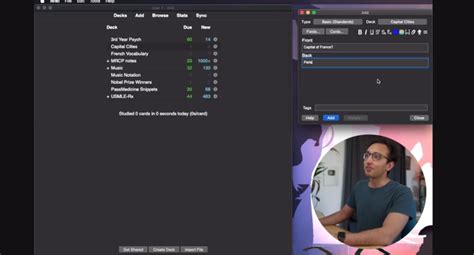How to Use Anki: The Ultimate Guide to Mastering Flashcards and Boosting Your Learning
Anki is a powerful, free, open-source flashcard program that can revolutionize your learning. Whether you're studying for exams, learning a new language, or memorizing anything else, Anki's spaced repetition system (SRS) can dramatically improve your retention. This comprehensive guide will walk you through everything you need to know to get started and master Anki.
Getting Started with Anki: Download and Installation
First, you'll need to download Anki. You can find it easily via a web search for "Anki download." The process is straightforward; simply download the installer appropriate for your operating system (Windows, macOS, Linux, Android, iOS) and follow the on-screen instructions.
Understanding Anki's Core Concepts
Before diving into the interface, understanding Anki's core principles is crucial for maximizing its effectiveness.
Spaced Repetition System (SRS): The Heart of Anki
Anki's power lies in its SRS. This system presents you with cards at increasing intervals based on your performance. Cards you struggle with will appear more frequently, while cards you master will be shown less often. This optimized scheduling ensures you retain information more effectively than with traditional flashcards.
Decks and Cards: Organizing Your Learning
Anki organizes information into decks, which are essentially collections of cards. Each card contains a front (the question or term) and a back (the answer or definition). You'll create decks tailored to your specific learning goals.
Note Types: Customizing Your Cards
Anki offers various note types, allowing you to customize the structure of your cards. Basic note types include basic flashcards, cloze deletions (filling in the blanks), and multiple choice. Choosing the right note type depends on your learning style and the material you're studying.
Creating Your First Anki Deck
Let's create a simple deck to illustrate the process.
1. Creating a New Deck
Open Anki and click "Create Deck." Give your deck a name (e.g., "Spanish Vocabulary").
2. Adding Cards
Click "Add" to create your first card. On the front, write the Spanish word, and on the back, write the English translation. Repeat this process for as many words as you want to learn.
3. Understanding Card Types and Fields
Experiment with different card types to find what works best for you. For example, consider using a cloze deletion card type to test your recall of specific words within a sentence. This allows for more in-depth learning.
Mastering Anki's Features
Anki offers several advanced features to further enhance your learning experience.
Scheduling Options: Optimizing Your Study Sessions
Anki's default scheduling is generally effective, but you can customize it based on your preferences and learning pace. Experiment with different options to find what works best for you.
Add-ons: Expanding Anki's Functionality
Anki's extensive library of add-ons allows you to personalize your experience. Add-ons can add features such as image occlusion, improved search functionality, and even integration with other learning tools.
Tips for Effective Anki Usage
- Consistency is Key: Regular, short study sessions are more effective than infrequent, long ones.
- Active Recall: Focus on actively recalling information, rather than passively reviewing it.
- Regularly Review Your Decks: Make sure to review your decks consistently to reinforce learning.
- Use Images and Multimedia: Incorporating images and other multimedia can significantly improve memorization.
- Don't Be Afraid to Experiment: Try different note types, scheduling options, and add-ons to find what best suits your learning style.
Conclusion: Unlock Your Learning Potential with Anki
Anki is a powerful tool that can significantly boost your learning efficiency. By understanding its core principles and utilizing its features effectively, you can unlock your learning potential and achieve your academic or personal goals. Start small, be consistent, and experiment to discover how Anki can transform your study habits.
